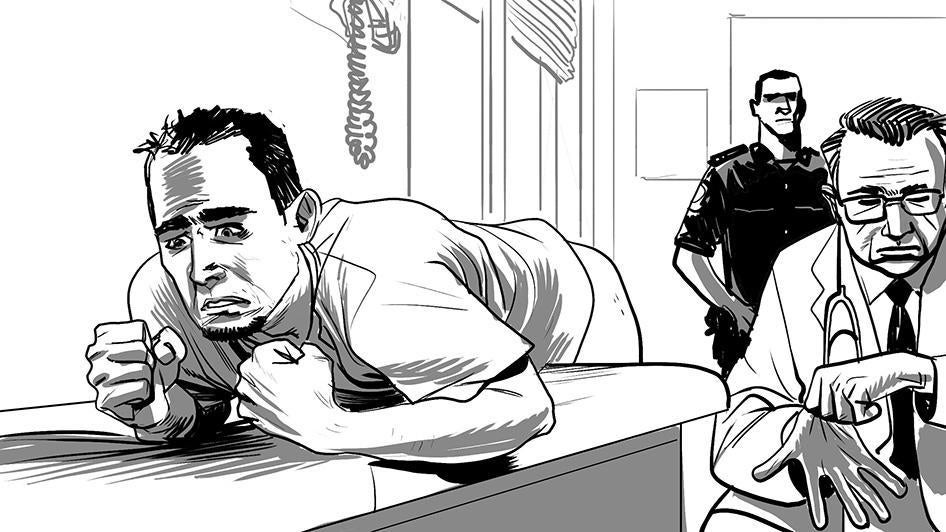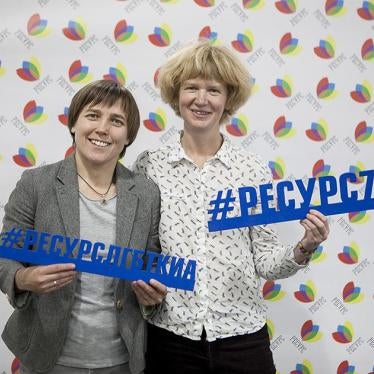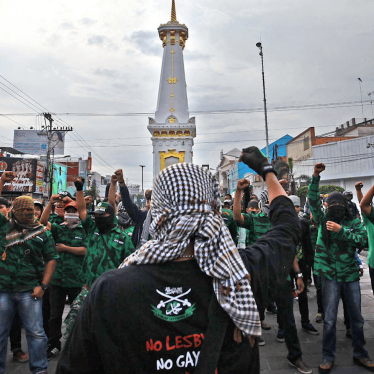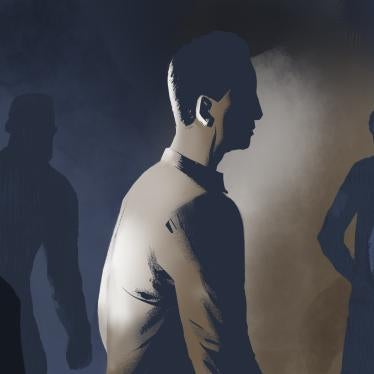“Ahmed” (not his real name) was only 17 when police came to his house in August 2017, searched his phone, interrogated him, and detained him. The next day, they took him to a hospital.
“I did not understand what was going on,” Ahmed said. “The police told me that the test is mandatory. The doctor told me to go on an examination bed and to bend, and then he inserted his fingers in my insides.”
Ahmed was undergoing a forced anal examination – a horrific and utterly unscientific method of seeking proof of homosexual conduct by evaluating the shape of the anus and the tone of the anal sphincter. His sister was the one who tipped off the police.
He was released without charge after two days – but that was just the beginning of Ahmed’s ordeal. In May, police detained him again at his family’s behest. A judge sentenced him to two months in a juvenile detention center, where a psychiatrist conducted “conversion therapy” to try to change his sexual orientation. And in September, he was held another eight days after his family complained again.
As long as homosexual conduct remains illegal, and as long as police remain willing to detain people on the basis of a complaint alone, it seems that Ahmed will never be free of the fear of arrest. And as long as police resort to such invasive methods to investigate flimsy allegations, no one’s privacy is guaranteed.
Article 230 of Tunisia’s penal code criminalizes same-sex relations with up to three years in prison, while article 226 criminalizes “harming public morals,” which are conveniently undefined. Last week, Human Rights Watch published a review of 11 arrests under these laws in 2017 and 2018. We found routine violations of privacy rights: police entered homes without warrants, searched through chats and photos on people’s phones, and conducted forced anal examinations, even after promising the UN Human Rights Council it would stop using them. We heard allegations of mistreatment in police custody, forced confessions, and denial of access to legal counsel.
Two of the most disturbing cases involved men who said they were raped. “Khaled,” raped in June 2018, said that one of his attackers told him: “‘You people of Loth [a demeaning term derived from the Biblical and Quranic story of Lot], you deserve to be killed…. We will show you what sodomy is like.” Then two of them held him by the arms, while the third inserted a baton in his anus.
But when he went to the police in Monastir to report he had been raped, instead of treating him as a victim, police asked doctors to conduct an anal examination and determine whether Khaled was “used to practicing sodomy.” He fled and is seeking asylum in Belgium. Another man, “Mustafa,” was prosecuted for sodomy – though the police charged his attacker with rape.
These accounts suggest that no one’s privacy is guaranteed in Tunisia as long as the law allows police to arrest people on a whim, search through their private messages, and conduct invasive examinations of their intimate parts. Such police conduct – and the very existence of article 230 – violates Tunisia’s obligations under international human rights law.
Prosecutions for consensual sex in private and between adults violate the rights to privacy and nondiscrimination guaranteed by the International Covenant on Civil and Political Rights, to which Tunisia is a party. The UN Working Group on Arbitrary Detention has found that arrests for same-sex conduct between consenting adults are, by definition, arbitrary.
Tunisia’s own constitution obliges the government to protect the rights to privacy and the inviolability of the home and says that all citizens are equal before the law. The constitution prohibits “mental and physical torture.”
As part of reforms following the 2011 uprisings in Tunisia and elsewhere in the Arab world, President Beji Caid Essebsi established a Commission on Individual Freedoms and Equality. In June, the commission recommended that Tunisia decriminalize homosexual conduct and end anal testing. Several members of Parliament, in October, introduced draft legislation incorporating several commission proposals, including abolishing article 230. Parliament should move quickly on this draft legislation, abolish article 230, and enact a law protecting people’s privacy.
As Ahmed, the 17-year-old who went through a forced anal exam and conversion therapy, told us: “I told the judge that I didn’t break any laws. I did not hurt anyone. This is my private life and should not be the concern of anyone else.”
If a teenager can understand and articulate the right to privacy, it should not be a stretch for the Tunisian authorities to do the same.









